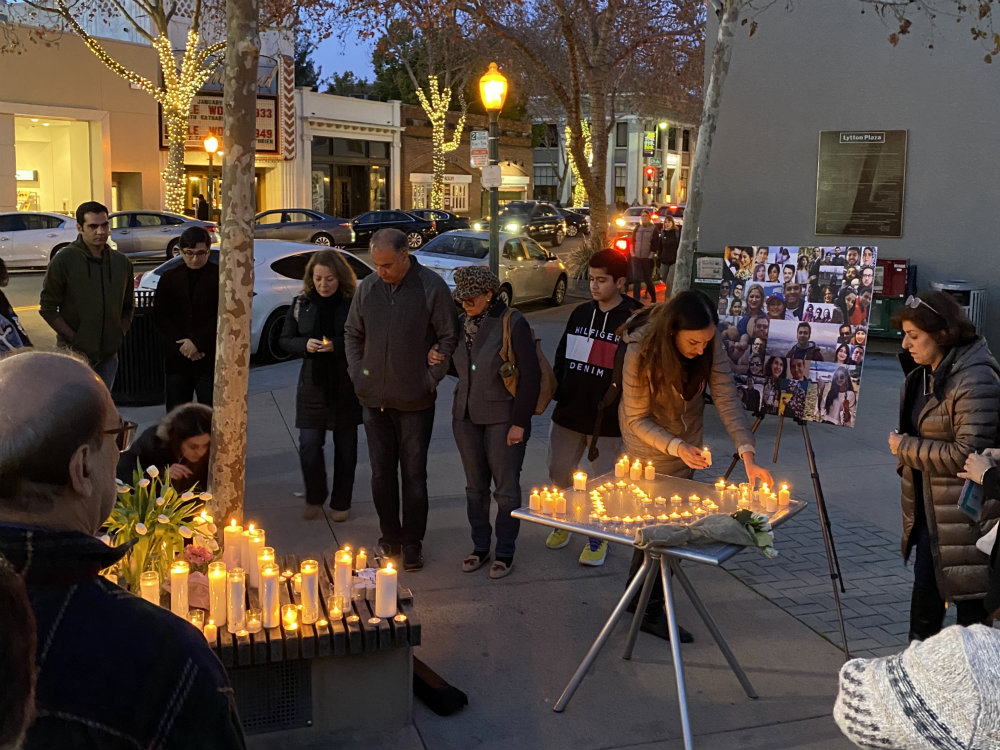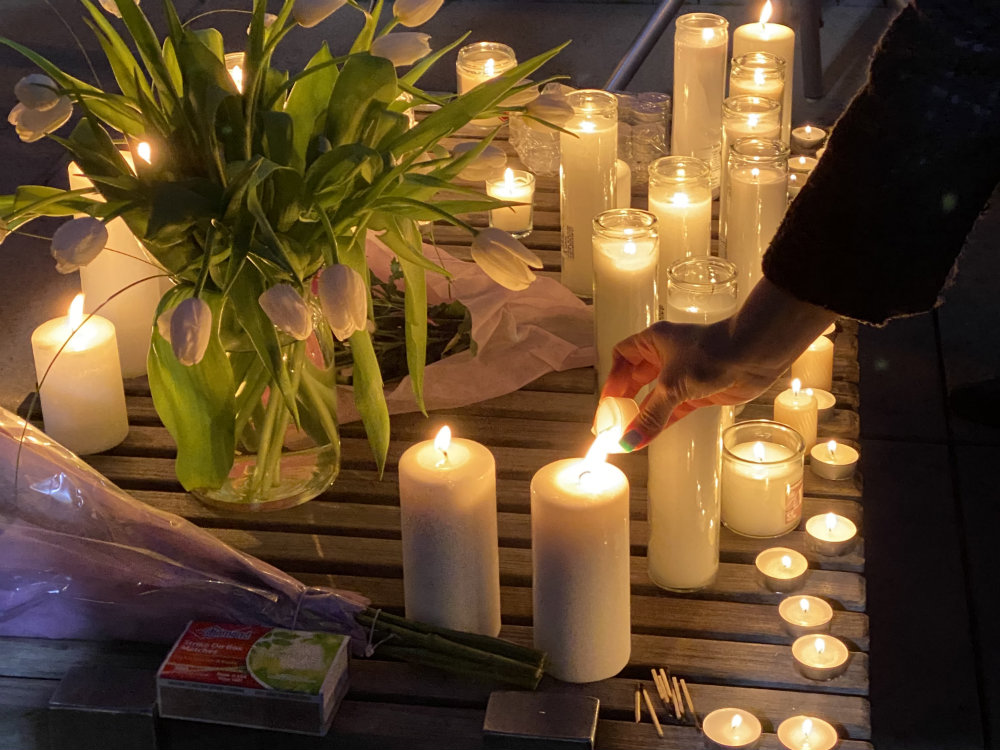
About 100 members of the local Iranian-American community held a candlelight vigil in Palo Alto’s downtown Lytton Plaza Jan. 12 for the victims of PS 752, the Ukrainian jetliner downed by an Iranian missile.
“This is one small way to express our sorrow and have the community come together,” explained Touraj Parang, one of the organizers of the event. “There are actually a lot of people that knew some of the folks on the airplane, here at Stanford actually, even among the Ph.D students.”
In the wake of last week’s downing of Ukraine International flight PS 752 over Tehran—itself an unintended consequence of the military confrontation between the Islamic Republic of Iran and the United States— the fallout for the government at home and abroad has continued to grow as protests erupt in the streets of Tehran, and foreign officials demand further answers and accountability.
The repercussions of the crash could be felt over 7,000 miles away, as members of the Iranian-American community gathered at the plaza, just off of University Avenue. Forming a wide circle around a collection of candles and a poster board depicting the victims, members of the community paid their respects for the dead.
“We felt that this would be another way to honor their memories and then also show support for friends and family and everyone who’s affected by this,” Parang added.
Some at the event had personal connections to the victims. Taha Rajabzadeh, a student, said he simply happened upon the event while walking down University Avenue, his eyes catching the candle-lit poster board. He said that some of the victims had been his friends from years past. Nazi Abdo described listening to her niece—a student in Toronto, where many of the victims were from— crying about the death of one of her close friends.
Others explained that they came out of feelings of solidarity. “I actually finished my Ph.D at Stanford a few years ago and a lot of the people that died have a very similar background to me,” said Leili, who wished to be identified only by her first name. She later went on to speak in front of the vigil. “A lot of people are upset, a lot of hopes are crushed.”
The stories highlighted the uniquely close-knit nature of the Iranian diaspora across Canada and the United States; about 40% of Iranian Americans in the U.S. reside in California.

“The diaspora is a pretty big community, and a lot of us know each other, especially once you come into academic circles,” Parang explained.
While protests in Iran have quickly become combative, the mood at the vigil was primarily mournful. Most were clad in dark colors, making quiet conversation—often in Farsi—with their neighbors. Yet it was also a social affair, with frequent exchanges of cheek kisses and children scampering about. One woman wove through the crowd offering samples of a homemade dish.
The political sentiment of the crowd varied as well.
“I just want to say I hate my government, I hate Khamenei, because he is the only person who is responsible for this disaster,” said one woman, even as another woman who requested anonymity insisted that the plane crash and the Iranian government are separate issues.
Others suggested that their feelings about the government remained fixed, unchanged by one incident or another.
“It’s a hard question to answer, really,” mused another man on the question of what the American response must be.
Still, there did appear to be an undercurrent of anti-government sentiment at the gathering. At one point, many in the crowd began singing “Yar-e Dabestani Man,”— Farsi for “My Grade-School Friend,”— a song associated with resistance and opposition to the government frequently heard at domestic protests and expatriate rallies alike.
“Regardless of what you believe in, regardless of whether you’re for or against the Iranian government, this is not acceptable. This is not right,” said Sholeh Moinee, who expressed anger at the “irresponsibility” of the government.
